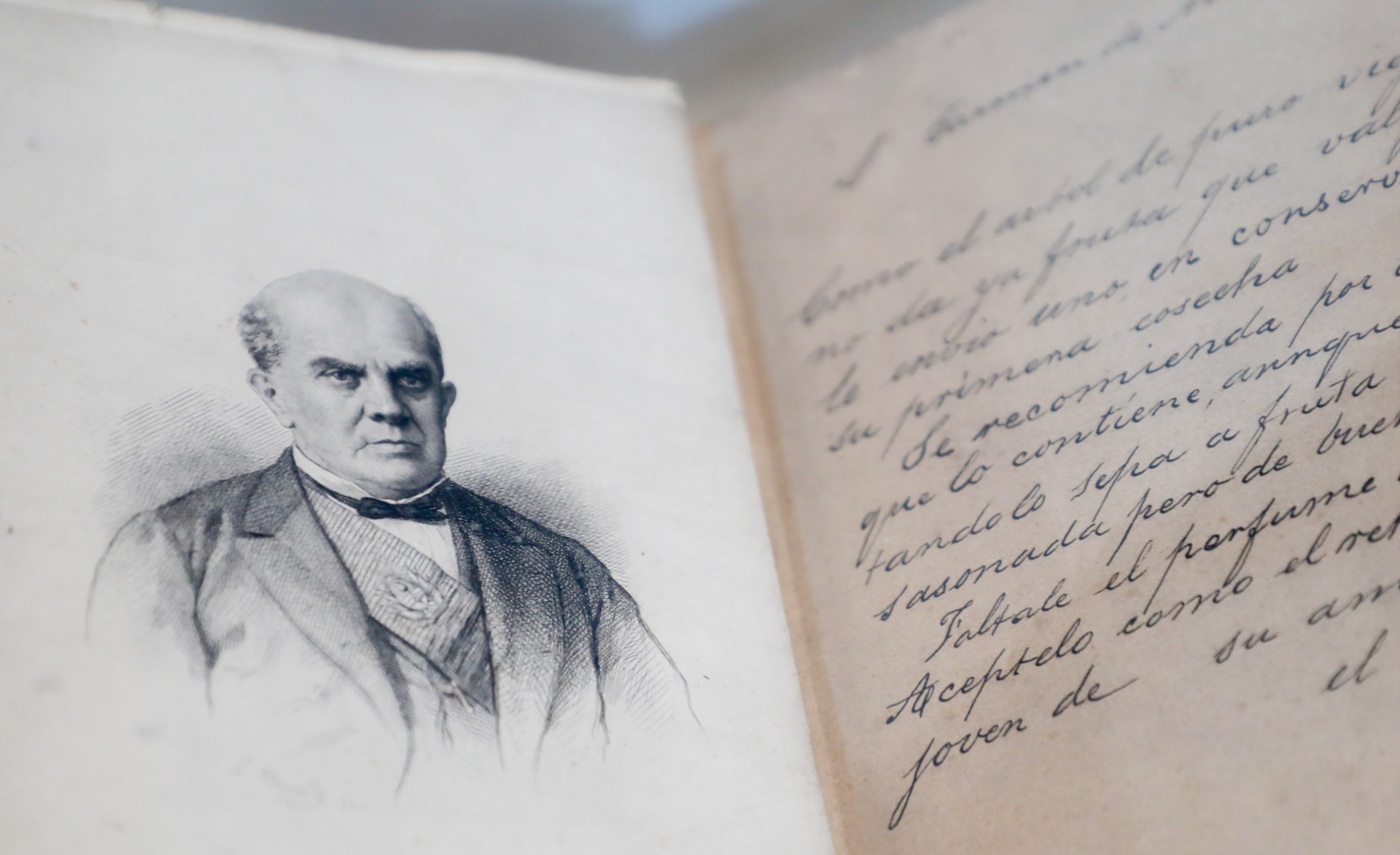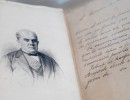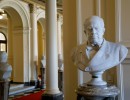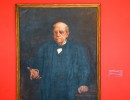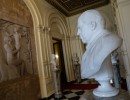He was born on February 15, 1811, in the province of San Juan. He was president of Argentina between 1868 and 1874. He stood out for his role in imposing compulsory education at the primary level and fighting against illiteracy. His literary legacy and critical thinking, as well as his liberal political influence and his contributions to the growth and national identity of Argentina were also of great relevance.
The son of José Clemente Quiroga Sarmiento and Paula Albarracín, Domingo Faustino Sarmiento grew up in a very poor family in the San Juan neighborhood of El Carrascal. His father and uncle taught him to read at the age of 4. Between 1815 and 1821, he studied at the "Escuela de la Patria" in his hometown, founded by the governments of the Revolution.
In 1831, after the federal victory and the subsequent triumph of Facundo Quiroga, caused Sarmiento's first exile to Chile, where he remained until 1836 carrying out different activities to survive.
Back to San Juan, on July 20, 1839 Sarmiento founded the newspaper "El Zonda" with the purpose of turning it into an intermediary between the provincial power and the society of his province, during the governorship of Nazario Benavidez. His publications provoked many criticisms from the political power, which led to the closure of the weekly. However, in 1862, when Sarmiento was governor of the province of San Juan, "El Zonda" was republished.
During his second exile in the Andean country, Sarmiento published his most important work: Facundo, Civilization and Barbarism, in 1845. He chose journalism as a trench to fight against Juan Manuel Rosas.
Around 1845 Sarmiento left Valparaíso (Chile) on an official mission to study educational methods in Europe and the United States. He visited Uruguay, Brazil, France, Spain, Algeria, Italy, Germany, Switzerland, England, USA, Canada and Cuba. In 1848 he married Benita Martínez Pastoriza, widow of his friend Domingo Castro y Calvo, and adopted their son, Domingo Fidel ("Dominguito").
During the presidency of Bartolomé Mitre (1862-1868), Sarmiento assumed the governorship of San Juan. During his mandate he dictated an Organic Law of Public Education that established compulsory primary education. He created schools for the different levels of education and the Escuela de Señoritas, aimed at training female teachers.
In 1863, the uprising of Chacho Peñaloza took place in the area and Sarmiento decreed a state of siege, personally assuming the war against the Riojan caudillo until he defeated him. Mitre's Minister of the Interior, Guillermo Rawson, criticized Sarmiento's attitude of decreeing the state of siege for considering that it was an exclusive decision of the national executive power. Sarmiento resigned.
A year later, at Mitre's request, Sarmiento traveled to the United States. Elections were approaching in Argentina and a group of politicians nominated him for the presidential candidacy. The curious fact was that while he was traveling to Buenos Aires, the Congress consecrated him president of the Argentines. His mandate began on October 12, 1868 and ended on the same day in 1874.
During his presidency, Sarmiento strongly imposed public education and culture, founded eight hundred schools throughout the country, conducted the first School Census and created the Astronomical Observatory of Córdoba, the Faculty of Physical and Mathematical Sciences. He also conducted the first National Census (1869), and that same year, the historic Civil Code created by his Minister of the Interior, Dalmacio Vélez Sarsfield, was approved.
At the military level, he sanctioned the Military Recruitment Law, bought the first modern ships that the Nation had, created the National Military College, founded the Naval School, and the Artillery Arsenal of Zarate.
Sarmiento promoted a unifying policy that would put an end to the isolation among the provinces. With foreign investments, he expanded the railway and telegraphic cable networks, he also promoted the development of mining in the mountainous provinces with tax reductions and economic benefits, and he promoted agricultural and cattle raising activities through the foundation of agricultural colonies, such as in Chivilcoy, province of Buenos Aires.
His vision and actions were so important for the creation of a liberal democratic republic that they continue to inspire and guide later generations in the search for a prosperous future.
He died on September 11, 1888, in the Paraguayan capital of Asunción. His remains rest in the Recoleta Cemetery.
Domingo Faustino Sarmiento's collection at the Casa Rosada Museum
In the Casa Rosada Museum, four objects that belonged to the former president stand out. On the one hand, a secreter with small drawers, of French origin, which closes like a closet.
It also has a rocking chair, a copy of the book Facundo, and a portrait made by his granddaughter Eugenia Belin Sarmiento, who was a plastic artist from San Juan.
In addition, in the gallery of the presidential busts, there is the one of Sarmiento, made by the Italian sculptor Ximenez Ettore in 1897.
